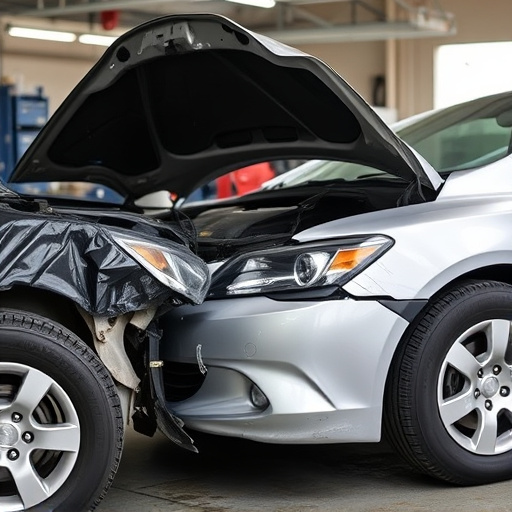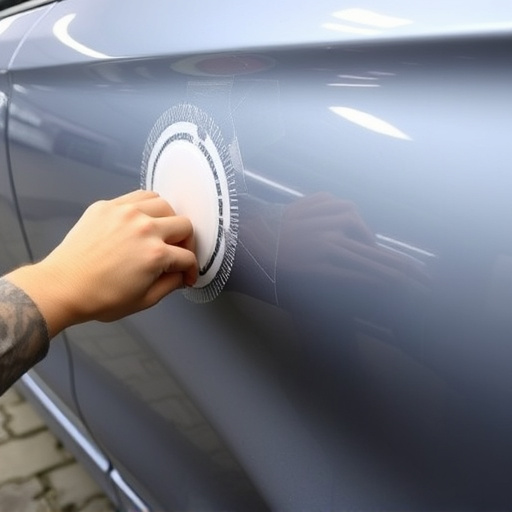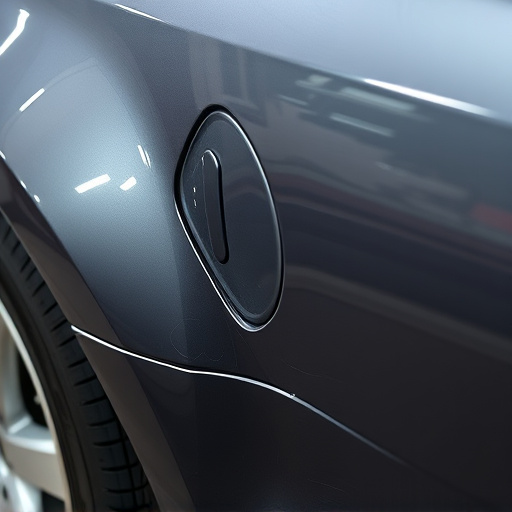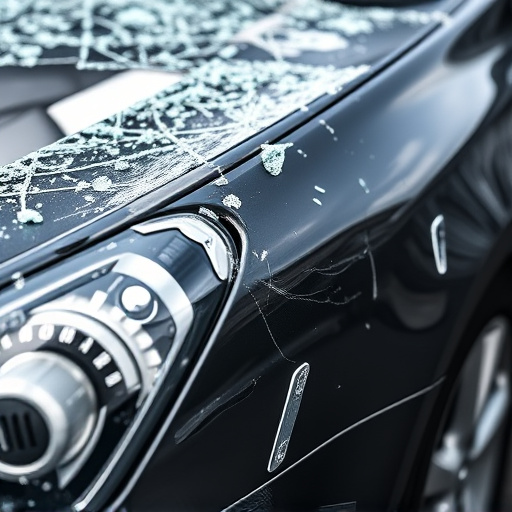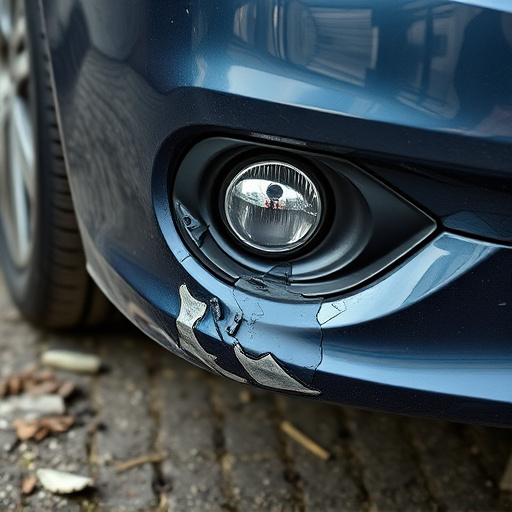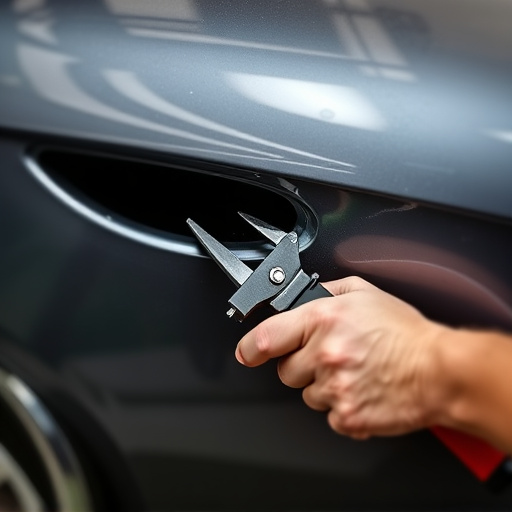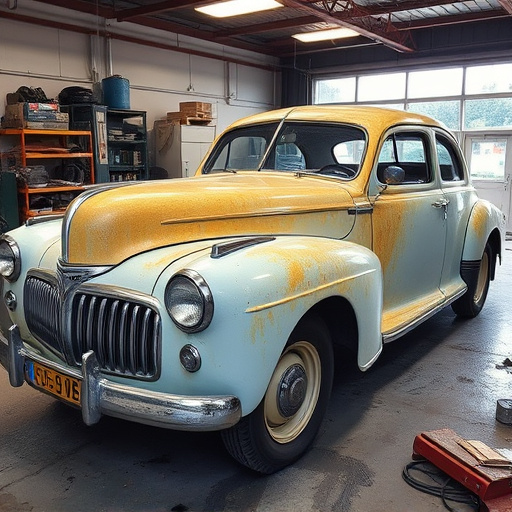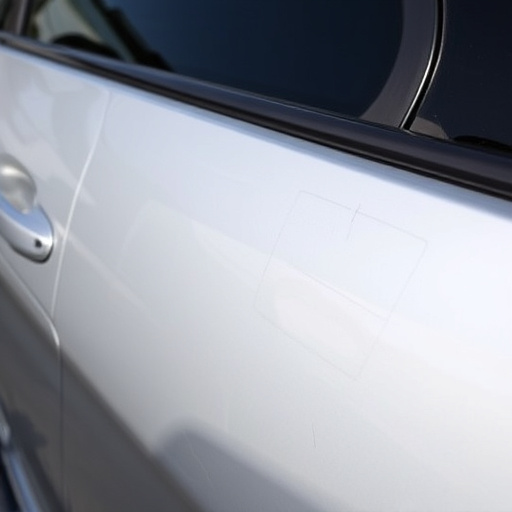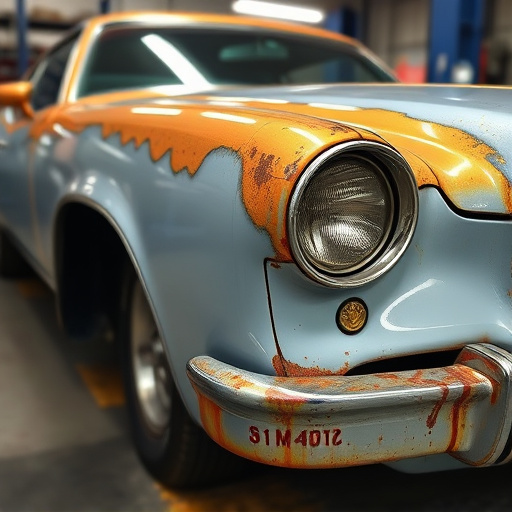Body panel insulation is a crucial automotive component that goes beyond thermal protection, enhancing safety, reducing noise, and improving performance. In manufacturing and repair, lightweight foams, fiberglass, and synthetic resins create robust barriers that withstand extreme temperatures and collision damage. Car body shops strictly adhere to industry standards for structural integrity and passenger comfort, employing meticulous layering techniques while maintaining aesthetic appeal. In the automotive industry, body panel insulation meets global fire resistance, thermal management, and impact durability standards, ensuring consumer protection and vehicle structural integrity. This meticulous attention to detail distinguishes premier bodywork services, emphasizing safety compliance and customer satisfaction. Insulated panels also reduce weight, improve fuel economy, minimize noise pollution, and enhance structural integrity during repairs.
Body panel insulation has emerged as a critical component in modern vehicle construction, playing a pivotal role in enhancing safety, performance, and efficiency. This essential material acts as a protective barrier, absorbing impact energy during collisions, thereby improving overall crashworthiness. In this article, we’ll explore the crucial aspects of body panel insulation, including its materials, industry safety standards, and diverse applications that contribute to safer and more efficient vehicles.
- Understanding Body Panel Insulation: Materials and Composition
- Ensuring Safety Compliance: Industry Standards and Regulations
- Benefits and Applications: Enhancing Vehicle Performance and Efficiency
Understanding Body Panel Insulation: Materials and Composition

Body panel insulation is a critical component in automotive manufacturing and vehicle repair, offering more than just thermal protection. It’s a multifaceted material designed to enhance safety, reduce noise, and improve overall vehicle performance. The primary materials used in body panel insulation vary but typically include a combination of lightweight foams, fiber glass, and synthetic resins. These components work together to create a robust barrier that can withstand extreme temperatures and the rigors of vehicle collision repair.
In a car body shop, the selection and application of suitable body panel insulation are essential during both new car manufacturing and vehicle collision repair. The composition must adhere to stringent industry standards, ensuring the safety and structural integrity of the vehicle. This meticulous process involves carefully layering materials to achieve the desired level of insulation while maintaining the aesthetic appeal and dimensional stability of the panels, ultimately contributing to a smoother ride and enhanced passenger comfort in various driving conditions.
Ensuring Safety Compliance: Industry Standards and Regulations

In the realm of automotive craftsmanship, ensuring safety compliance is paramount when addressing body panel insulation. Body panel insulation plays a crucial role in both vehicle performance and structural integrity. To this end, manufacturers must adhere to stringent industry standards and regulations set forth by governing bodies worldwide. These guidelines encompass not only the material composition of insulation but also its application, ensuring it meets specific criteria for fire resistance, thermal management, and impact durability.
Compliance with safety standards is vital, especially in services like paintless dent repair and car bodywork. Vehicle body shops that specialize in such repairs must employ insulated panels that not only meet or exceed regulatory requirements but also contribute to the overall quality of the vehicle’s construction. By doing so, they ensure customer satisfaction and protect against potential hazards associated with substandard materials. This meticulous attention to detail is what distinguishes top-tier car bodywork services from their counterparts.
Benefits and Applications: Enhancing Vehicle Performance and Efficiency

Body panel insulation offers a multitude of benefits that extend beyond mere thermal comfort. By strategically incorporating this technology into vehicle construction, manufacturers can significantly enhance performance and efficiency. The reduced weight of insulated panels contributes to improved fuel economy, allowing vehicles to travel farther on less energy. This is particularly beneficial for electric and hybrid vehicles, where every kilojoule counts.
Moreover, insulation acts as a sound barrier, minimizing noise pollution both inside and outside the vehicle. This feature not only enhances the driving experience for passengers but also contributes to quieter streets. In addition, insulated body panels can improve structural integrity during auto body work and car dent repair processes, ensuring that vehicles maintain their safety ratings even after minor accidents.
Body panel insulation, adhering to stringent industry safety standards, offers a multitude of benefits for vehicle manufacturers. By understanding the materials and composition, ensuring compliance with regulations, and leveraging its applications in enhancing performance and efficiency, car makers can deliver safer, more reliable vehicles. This advanced technology is not just a game-changer in the automotive industry; it’s also a testament to how innovation and safety can go hand in hand.

